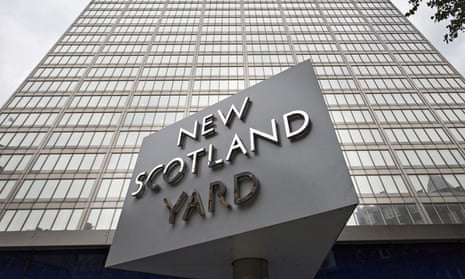When, in 1999, Sir William Macpherson published his report into Stephen Lawrence’s murder and pronounced the Metropolitan police institutionally racist, it marked the moment when the whole discourse around policing changed. Something similar may have happened on Thursday, when the Met declared that, despite a lack of corroboration, it found the evidence of a survivor of child sex abuse at the hands of a VIP paedophile ring to be “credible and true”.
This is an important change. In the three years since Jimmy Savile was exposed as a cruel and exploitative serial abuser, public understanding has grown more sophisticated. The confidence of victims to come forward has been growing. That phrase, “credible and true”, crystallises the change. It does not mean that no child will ever again be abused, any more than the Macpherson inquiry ended police racism. But victims should take courage from the significance of this moment. In future, they will be heard.
The Met has been interviewing a witness, known only as “Nick”, who alleges that he was abused by a paedophile ring operating in the 1970s and 80s in Westminster and other places, including military establishments, in the south-east of England. Nick is the first witness to substantiate persistent rumours of abuse involving members of parliament, which have been around for 30 years, and he makes the startling allegation that three of the boys involved in so-called “parties” were murdered.
But, after the failure of the Wanless inquiry to find a paper trail to support the charge of cover-up, more witnesses must come forward if charges are ever to be brought. That means, first, victims overcoming the trauma of an experience that leaves some so damaged or so fearful that they need support and counselling before they are able to talk to the police. Second, the police themselves have to overcome their own poor record for taking complaints seriously. They hope their bold expression of confidence in Nick will demonstrate that they are taking the allegations seriously, and that they are ready to support and listen to anyone who finds the courage to speak out. This is an important moment.
But failure to progress the wider inquiry into allegations of a cover-up of high-level child sex abuse first promised in July may yet undermine it. After appointing the wrong chair not once but twice, the home secretary, Theresa May, has apologised for failing to understand the scale of the task. That, though, was in early November, and she has still to appoint a new chair. Earlier this week, she told the home affairs select committee that she was considering giving the inquiry extra powers, extending its terms of reference and rolling back the period it examines from the 1970s to the 50s.
It is getting closer and closer to the statutory inquiry that some of the survivor groups wanted from the start. Mrs May should take a good look at Australia’s royal commission, which allows survivors to be heard and at the same time draws lessons from the different institutional responses. It would be a good model to follow.



